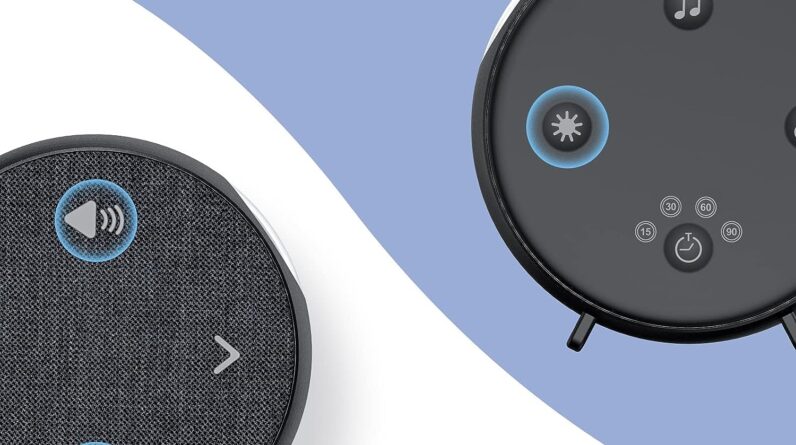
Are you ready to embark on a journey towards serenity and well-being? In this absorbing guide, “Self-Care Essentials: How to Build a Relaxation Routine from Scratch”, you’ll find a step-by-step blueprint to develop and cultivate your own personal oasis of calm. From mindful practices to physical activities, it’s time to put your mental health first, nurture your body and mind, and foster an atmosphere of rest and rejuvenation in your daily life. The road to tranquility and self-care begins here, so let’s venture together onto this path of relaxation and peace.
Table of Contents
Understanding the Importance of Self-Care and Relaxation
Your health and happiness largely depend on how you treat yourself. As such, the art of self-care is more than a luxury – it’s a necessity.
Concept and significance of self-care
Self-care means taking the time to nurture your physical and mental health. It involves honoring your needs by incorporating positive habits and activities into your daily routine. Through this steady commitment, you can boost your overall wellness and even delay the progression of potential health issues. More significantly, regular self-care fosters self-love – making you appreciate your unique individuality.
The role of relaxation in overall wellness
Relaxation goes hand-in-glove with self-care and is a pillar of your wellness strategy. By indulging in relaxing activities, you are leaving behind stressors, calming your mind, and soothing your body. This mental reset can improve your ability to focus, boost your mood, and even enhance your sleep quality.
The interconnection between self-care and relaxation
Taking time for self-care allows you to engage in relaxation activities intentionally. This connection is so profound that often, a self-care routine becomes incomplete without a section for relaxation. This delightful blend not only fosters an improved sense of satisfaction but provides a healthier perspective on daily responsibilities.
Identifying your Stressors
Managing stress is half the battle of maintaining optimal health and fulfillment.
Noticing signs of stress and burnout
Indicators of stress often involve recurrent headaches, sleep problems, and reduced productivity, among others. Burnout, a direct result of chronic stress, can cause feelings of emotional exhaustion and a sense of detachment from your surroundings. By the time you recognize these signs, your self-care routine is more necessary than ever.
Tools for stress identification
Keeping a daily journal can help identify what conditions or activities induce stress. Furthermore, you can also use several digital apps and tools designed to assess and monitor stress levels. These tools can come handy in recognizing triggers, thereby allowing you to strategize your self-care routine accordingly.
Link between stressors and individual self-care needs
Understanding your personal stressors is key to customizing your self-care plan. By identifying what stresses you, you can select activities specifically targeted to counter those stressors or triggers.

Building the Foundation of Your Relaxation Routine
Creating a customized relaxation routine requires deliberate planning.
Creating a consistent time slot for relaxation
Appointing a particular time of the day for relaxation ensures you don’t leave your self-care to chance. Regularity is key, and over time, your brain will start associating that specific slot with winding down, making relaxation more natural.
Identifying activities that promote relaxation
With a myriad of relaxation activities available, you should choose those that you enjoy and find most calming. This could be reading a book, gardening, listening to music, or any other hobby or passion that soothes your mind and body.
Creating a dedicated space for self-care
Having a sacred space for relaxation makes your self-care routine more effective. Whether it’s a corner of a room or an outdoor patio, ensure the environment promotes peace and serenity, aiding in your relaxation and rejuvenation.
Incorporating Physical Relaxation Techniques
Physical relaxation techniques are essential elements of a comprehensive relaxation routine.
Importance of physical relaxation
Physical relaxation techniques can release tension from your body, improve your focus, and promote better sleep. They could directly contribute to your overall wellbeing by combatting stress and enhancing your mood.
Yoga and meditation as relaxation exercises
Yoga and meditation are time-tested practices known for calming your mind, improving flexibility, and enhancing stress resilience.
Benefits of regular walks and physical exercises
Daily walks and regular exercises aren’t only great for your physical health, but they also work wonders for your mental wellbeing. They trigger the release of feel-good hormones, improving your mood, reducing anxiety, and aiding in stress management.

Exploring Mindful Relaxation
Mindful relaxation includes practices that help keep you grounded in the present moment.
Understanding mindfulness
Mindfulness is the state of being consciously aware of your senses and surroundings, without drifting into thoughts about the past or the future. It can reduce anxiety and improve both mental clarity and emotional intelligence.
Practicing mindfulness meditation
Incorporating mindfulness practices into your routine, including mindfulness meditation, can increase your mental agility, reduce negative thinking, and promote overall emotional health.
Conscious eating and mindful living
Mindful eating involves savoring your food in a slow, deliberate manner, enhancing the entire eating experience. Meanwhile, living mindfully can take many forms such as breathing exercises or simply paying attention to everyday activities.
Cultivating Positive Mental Habits
Positive mental habits are the cognitive aspect of self-care and relaxation.
Developing gratitude practice
Keeping a daily gratitude journal can help you focus on the good things in your life. Over time, this practice can significantly improve your mental outlook, enhance your mood, and instill a positive mindset.
Incorporating positive affirmations
Positive affirmations can condition your mind towards positivity, effectively booting out negative thoughts. Through repetition, they can reinforce your belief in your abilities, leading to improved self-esteem and increased productivity.
Practicing self-kindness and compassion
Being kind to yourself is a core aspect of self-care. Negative self-talk and excessive self-criticism can wreak havoc on your mental health. However, treating yourself with the same kindness and understanding you offer to others can significantly improve your emotional wellbeing.

Including Nourishing Foods in Your Routine
What you consume can directly affect your mood and energy levels.
Understanding the food-mood connection
Research shows that dietary choices can impact our mood. Consuming nutrient-rich foods can help maintain a balanced emotional state, whereas fluctuating blood sugar levels due to unhealthy eating can lead to mood swings.
Eating for stress relief
Certain foods, containing vitamins, antioxidants, and amino acids, are deemed natural stress-relievers. Including more of these in your diet can play a significant role in managing stress.
Staying hydrated
Adequate hydration plays a crucial role in maintaining mental clarity, boosting energy levels, and ensuring overall physical health.
Importance of Adequate Sleep
Another vital aspect of self-care and relaxation is ensuring you get enough quality sleep.
Understanding the link between sleep and wellbeing
Sleep and wellness are interconnected. Sleep deprivation could result in fatigue, concentration problems, and heightened stress. On the other hand, quality sleep boosts immunity, improves memory retention, and aids in recovery.
Creating a sleep-friendly environment
Transforming your bedroom into a sleep-friendly environment – dark, quiet, and cool – can significantly improve the sleep experience. Including bedtime rituals, such as reading or bathing, can further enhance sleep quality.
Adopting healthy sleep habits
Consistency is key when it comes to sleep. Going to bed and waking up at a set time can reinforce your body’s sleep-wake cycle, aiding in better sleep.
Creating a Support System
Having supportive people around you can significantly enhance your self-care journey.
Building a network of loved ones
Having loved ones as part of your support system can provide emotional comfort and practical help when you need it. Their understanding and encouragement can significantly strengthen your self-care efforts.
Reaching out to professionals when required
Never hesitate to access professional help if you feel overwhelmed by stress or any mental health issue. Therapists, counselors, and other healthcare professionals can provide you with tools and strategies to manage stress and stay emotionally healthy.
Joining self-care or wellness groups
Joining local wellness groups, workshops, or forums can also offer additional support. These platforms provide opportunities to share experiences, learn new tips, and get motivation from others on a similar journey.
Constant Evaluation and Adjustment
Your self-care is a dynamic process that needs constant attention and fine-tuning to stay effective.
Keeping a self-care journal
A self-care journal can help gauge the effectiveness of your routine. Reflect regularly on what aspects are working for you and what needs to change.
Adjusting strategies based on personal needs
Being open to modifying your self-care strategy is key. As you grow and change, your needs and preferences will too. Make adjustments based on what you feel you need at any given time.
Understanding that it’s a dynamic process
Lastly, it’s important to remember that building a self-care and relaxation routine isn’t a one-time task. It’s a constant process of experimenting, learning, and adjusting to create a routine that brings you maximum benefits.
Taking care of yourself isn’t an act of indulgence but an essential part of everyday living. Without it, managing stress, and maintaining overall wellbeing would be next to impossible. So, embrace the art of self-care, cultivate relaxation techniques, and embark on your journey towards a healthier, happier life.





